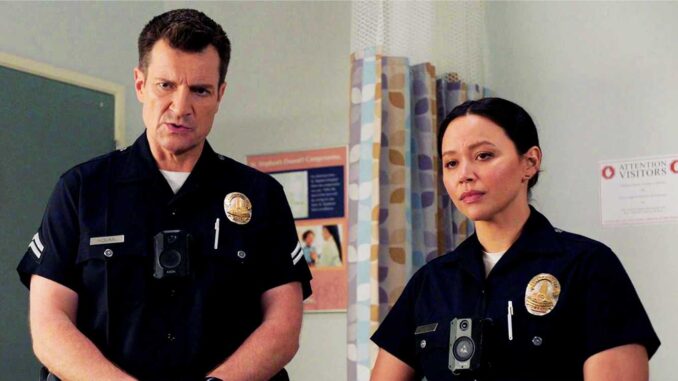
The Crucible of Truth: How Hawley’s Explanation Shapes the Future of The Rookie
The world of The Rookie is one perpetually teetering on the edge of chaos, a vibrant, often humorous, yet fundamentally earnest exploration of law enforcement in Los Angeles. Its characters navigate daily dilemmas, from the mundane to the life-threatening, all while striving for a personal and professional moral compass. Yet, few events have had as profound and far-reaching an impact on the show’s trajectory as Monica Hawley’s searing explanation regarding internal corruption. Far from being a mere plot point, Hawley’s testimony in the Rosalind Dyer case acted as a crucible, purifying the LAPD’s narrative space and fundamentally reshaping the future not just for John Nolan, but for the entire fabric of the series.
Before Hawley’s intervention, a murky, unsettling shadow of internal corruption loomed over the LAPD, personified by the insidious network led by Smitty, complicit in Rosalind Dyer’s manipulations and deeply entrenched within the system. This threat was existential, not just to individual officers like Nolan, but to the very concept of justice the show championed. It was a narrative poison, eroding trust from within. Hawley, an attorney with a reputation for sharp intellect and a keen ethical compass, was forced by circumstance and moral imperative to peel back these layers of deceit. Her explanation, delivered with clinical precision and undeniable weight, wasn't just a legal maneuver; it was an act of narrative exorcism, systematically exposing the rot and naming its perpetrators.
The immediate aftermath was a necessary, painful surgery. Smitty’s ring was dismantled, its members removed from positions of power, and Nolan, along with others unjustly implicated, was vindicated. This act of cleansing, born from Hawley’s courageous testimony, instantly altered the show's landscape. It swept away a major internal antagonist, allowing the narrative to breathe and pivot from the existential dread of internal sabotage to a renewed focus on external threats and more nuanced character development. No longer would viewers constantly wonder if the next trusted face might be a compromised one; the system, though imperfect, had demonstrated its capacity for self-correction.
Looking ahead, Hawley’s explanation serves as a new cornerstone for the show’s thematic architecture. For John Nolan, in particular, it signifies a profound shift. The cloud of suspicion that perpetually hung over his rookie status, the lingering doubt about his judgment in the face of Smitty’s manipulation, was definitively lifted. He was no longer simply a rookie trying to prove himself against external criminals and internal doubters; he was a proven survivor of systemic corruption, his idealism reaffirmed and his moral fortitude validated. This allows Nolan to transition more fully into a leadership role, be it as a training officer, detective, or sergeant. His future path, free from the shadow of Smitty’s ghost, is now paved with a stronger sense of purpose and unburdened potential. The show can now explore the intricacies of how a good cop navigates a genuinely complex world, rather than endlessly defending against an unseen enemy within his own ranks.
Furthermore, Hawley’s impact extends to the entire LAPD depicted in the show. The exposure of deep-seated corruption, even if purged, leaves a lasting scar and instills a heightened sense of vigilance. Future storylines can now delve into the consequences of such revelations – the process of rebuilding public trust, the reforms implemented, and the lingering psychological effects on the officers themselves. It allows the show to tackle more mature and complex ethical dilemmas, moving beyond the simple "good cop versus bad cop" dynamic to explore the gray areas of policy, procedure, and personal sacrifice within a system striving for integrity. The very fact that such corruption could exist, and was exposed, means that the stakes for maintaining ethical boundaries are now demonstrably higher for every character.
In essence, Hawley’s explanation didn't just resolve a critical plotline; it fundamentally redefined the narrative's moral compass. It underscored the show's enduring message that even within imperfect systems, truth and integrity can prevail, albeit with significant effort and courage. By clearing the air of pervasive internal rot, it provided a cleaner, more fertile ground for its characters to grow, for its themes of justice and redemption to deepen, and for its exploration of modern policing to evolve into a more nuanced and compelling future. The Rookie is no longer just a show about a middle-aged man chasing his dream; it is a testament to the continuous, often painful, process of striving for good within a world that constantly tests its limits, a journey now made possible by the unwavering light cast by Monica Hawley’s truth.